Before you read my observations below, please know that this blog was written to provide more context to those who have questions after listening to our webinar and reading our post about my experience visiting Amish dog breeding kennels in Indiana. I recommend that you visit both of those conversations, as well as the one below, to understand our viewpoint.
Written by Mindi Callison
October 14th, 2024
My Observations-
On September 26, 2024 we hosted a webinar where myself and Alexis Bell, our research analyst, shared with those in attendance our experience visiting Amish breeding facilities that were both USDA licensed and Canine Care Certified. We stressed numerous times that we are not here to tell anyone how to think, we are here to present facts and data to the public that accurately reflects the current landscape of the puppy mill industry. We approached this meeting much like we approach conversations with the public, we meet people where they are at and we provide context to their situation.
Except this particular webinar was in front of an extremely diverse audience who all walked away feeling something completely different from one another. We are proud to have commanded an audience of inspectors, state employees, breeders, rescues, pet stores and national animal welfare organizations. In such an important way, we were able to bring all of the key stakeholders to the table to hear our message.
Not all.
Not all breeders are puppy mills.
Not all Amish breeders are cruel.
Not all.
Context matters.
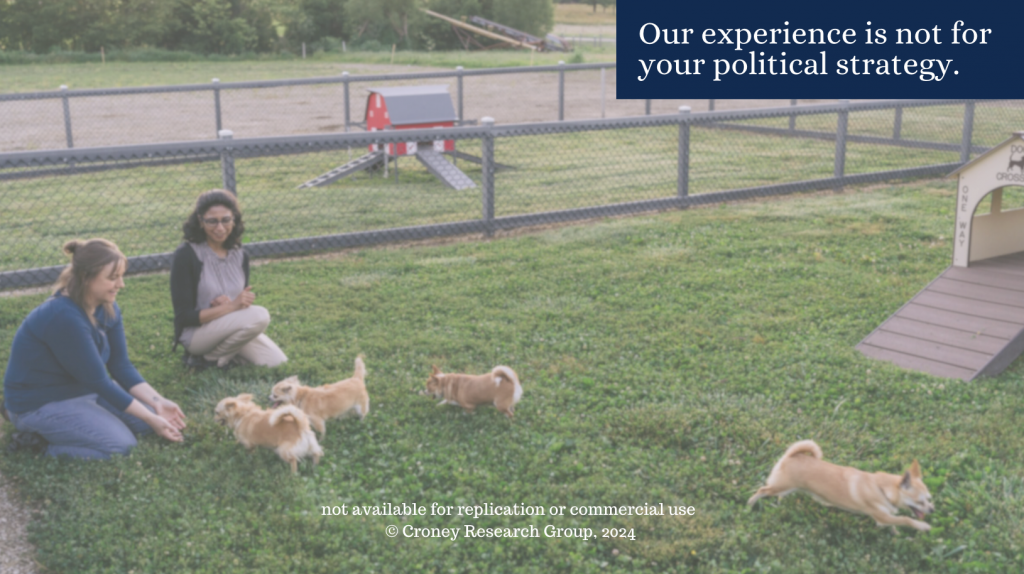
We recognize that our words hold immense power, especially in this space, which is why we feel that it is important to correct the extremely harmful narrative that all Amish dog breeders run cruel and inhumane puppy mills.
This year Jalaine and Alexis went to a national animal welfare conference to table as Bailing Out Benji. Clearly, our stuff is all marked “end puppy mills”, so people know what we are about. Unfortunately, as they spoke with people over the course of the conference they realized that more people were angry at the Amish as opposed to the industry as a whole. There were people who felt comfortable telling members of my team, telling complete strangers, that Amish people should have horrible things done to them because they breed dogs. Those will never be comments or conversations that we will perpetuate.
We also had to let one of our volunteers go earlier this year because she filmed herself yelling at an Amish family, including children, for being animal abusers and killing dogs. A member of my own team thought it was okay to film herself publicly screaming at a family simply because they were Amish and she believed in a harmful stereotype.
All of this was a huge wake up call for me that our ‘side’ of this is perpetuating hate and it is creating the fear and belief in Amish communities that English people want to hurt them. It was time for someone to speak up and take the temperature down in this often volatile conversation. We knew that our words would make a splash, but our hope was that the ripples would create positive change across the board for animals and the people who love them.
Unfortunately, due to the popularity of our webinar and subsequent discussions, I have received my own type of unkind comments including those insinuating that I have been paid off by puppy mills or that I am “sleeping with the devil” because we are conducting field research into commercial kennels and sharing our findings. While none of those accusations hold any truth to them, it again shows me that there is a lot of anger and distrust in our world. We have to make sure that in all facets of our lives we can rise above and have polite discourse on things we disagree on, or we can never advance as a society or create meaningful change in the fields that we are passionate about.
On the flip side, we have heard from even more people who felt relief when they saw our webinar. They saw the photos and the conditions within the facilities we visited and they were happy to know that our work is working.
Because that is true. To all of you who have been protesting, passing ordinances, and educating customers about puppy mills- YOUR WORK IS WORKING. Public pressure was a huge motivator in the changes we are starting to see. Some breeders heard so much about what they were doing wrong, that they started educating themselves on what they could do right. They listened to what the public was demanding and, more importantly, they leaned on science to tell them what dogs needed. Because of all of that, there are now some commercial dog breeders who are trying to make sure that anyone who visits wouldn’t call them puppy mills.
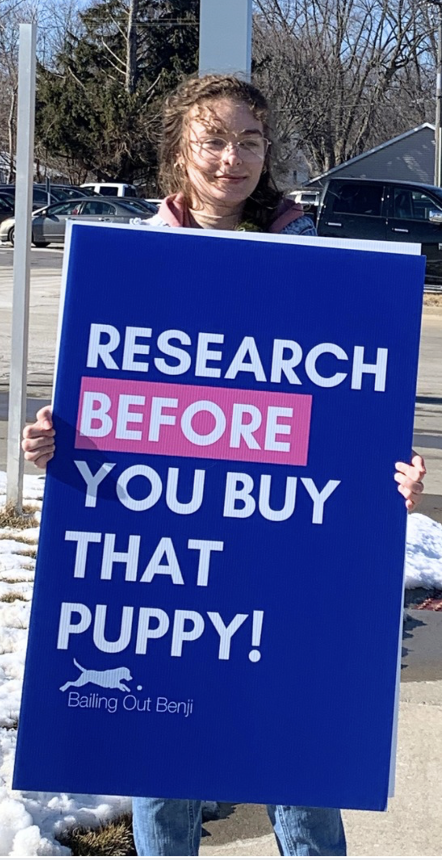
How can we be mad that there are places who have committed to doing better?
So far, the main concern we’ve heard surrounding our visit is that these breeders sell through pet stores and people don’t understand why we aren’t calling them puppy mills for doing so. We empathize with those that are concerned about how these breeders sell, because some of them do sell their puppies in stores and even through websites. But the term puppy mill has always been defined by the conditions in which the dogs are kept, not by how the breeders are selling. This is an important distinction that many overlook. The Oxford Dictionary, for example, defines a puppy mill as a facility that breeds puppies for sale in conditions that are considered inhumane and on an intensive basis. Our organization’s definition says that a puppy mill is a breeding facility in which the profit is more important than the welfare of the dogs. We know that puppy mills do sell through pet stores, but they also sell through websites, newspaper ads, craigslist, social media and more. It is no longer correct to assume that all puppy mills or all reputable breeders sell a certain way because everyone is selling everywhere. We live in a capitalist society and that is the nature of business. We have to accept these nuances in order to continue our work in an authentic way because this entire thing is extremely complex and messy.
Now imagine being the consumer trying to navigate all of this.
We always tell them where not to buy, but rarely do we help them make good decisions when attempting to buy. What guardrails have we put in place so that customers have all of the right information and know what questions to ask, no matter how they are buying? If we just tell people where not to go, we aren’t really giving them any direction on where safe places to go are. And we all know it is easier to find a puppy mill online that a humane breeder. The public keeps puppy mills in business by funding them, so we need to make sure they have the tools they need to make a humane decision. In some cases, those tools will be protests and policy. In other cases, the tools will be guidelines including questions to ask and red flags to look out for. This isn’t a job for everyone, and we know that. Rescues and shelters have their own work cut out for them and we aren’t expecting them to suddenly talk about dog breeding! But our organization is focused on ending puppy mills, which means we have to make sure people are avoiding them when they are already going to buy a puppy.
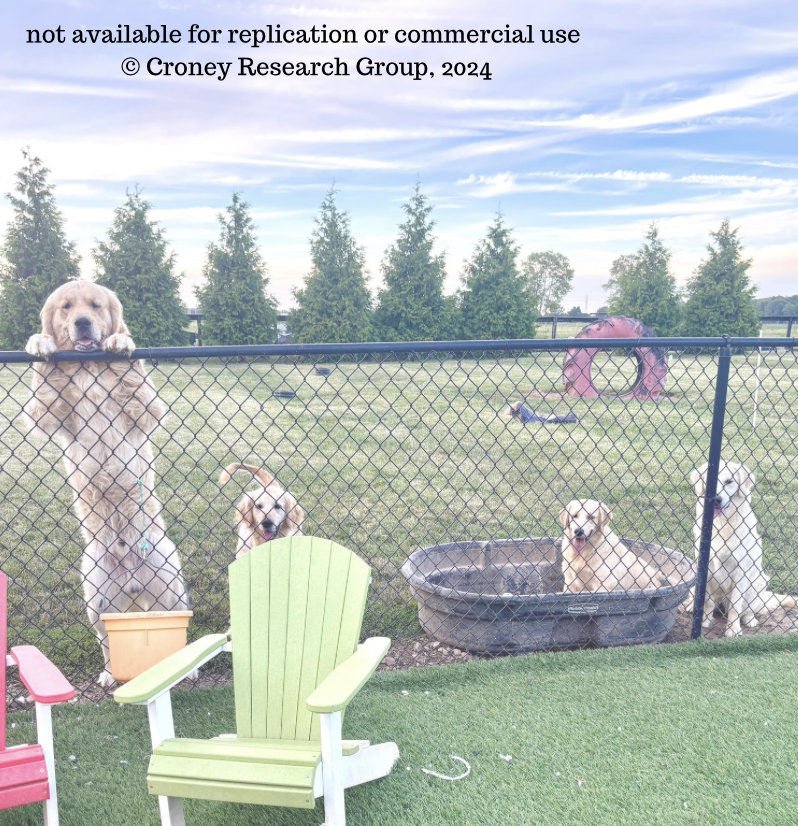
I want to say that I agree and acknowledge that our shelters are overwhelmed right now and too many animals are being euthanized for space. This trend has spiked all over the country and it is truly awful. We really need more organizations and the public to financially support community programs that keep pets with their families and we need more families to adopt animals from sheltering organizations.
Unfortunately, the reality is that thousands of people are adding puppies to their homes each week from breeders and puppy mills and they have no intention of ever adopting (as much as that pains us). Whether it was a bad experience with a specific organization or a stereotype they believe about adoptable dogs, some people will never go to a shelter or rescue when adding a new pet to their home. If we turn our backs on those that are going to buy either way, then we have failed at our mission to give them the tools they need to make a humane decision and avoid puppy mills. If we shame them or bash them, then we are feeding into harmful stereotypes that are often believed about animal advocates.
Our job at Bailing Out Benji is to make sure the public avoids puppy mills in order to take as much funding out of those cruel places as possible. Do not misconstrue this message though, I’m not asking anyone to go out and buy dogs, not in the slightest. That educational piece of what we have to do is strictly for the puppy-buying public. We will always do what we can to advocate for adoption in cases where families are open to that because those animals deserve to find their forever families.
Before I end, I want to talk about breeders for a second and what our hope is now that this conversation is extremely public. Some breeders are doing a great job and others are doing a horrific job. That is a fact and something we see every day through our field and academic research. So can you imagine what would happen if more breeders hear that people like us don’t believe that all breeders give their animals the same kind of cruel and inhumane care that we see on the daily within puppy mills? If animal advocates can acknowledge that there are differences within that industry, that we can see that some people do have the best standards and are putting more attention on the care of the adult dogs, then more breeders might be inspired to also do better.
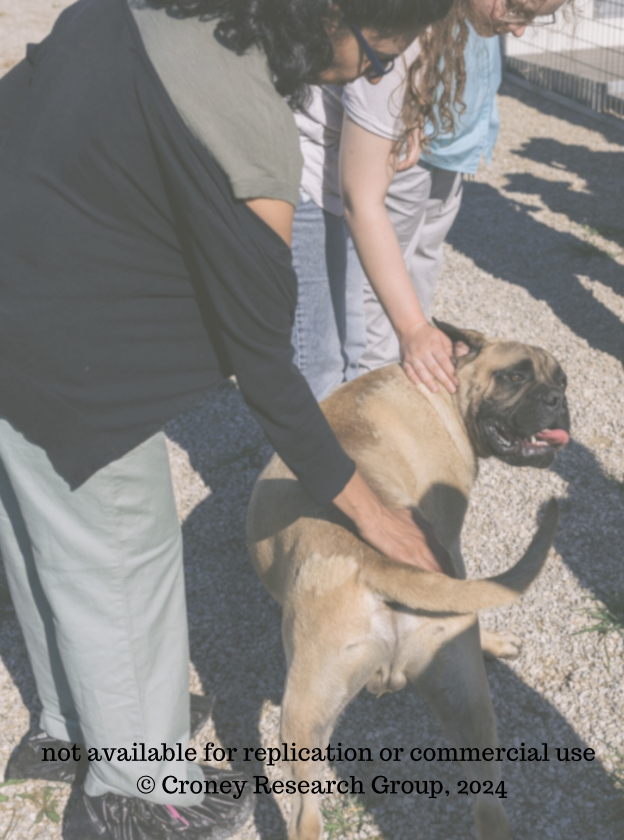
This would mean that less dogs would be suffering right now in breeding facilities. We are all asking for stronger laws and a USDA upgrade, but those changes take years- bills at the federal level can take a decade or longer. The dogs in the facilities right now may not even be alive when those policy changes happen, but they will benefit greatly right now if the kennels begin implementing positive changes into their programs. Don’t misconstrue this statement either: We still think that advocates should be pushing for stronger laws, we just need to acknowledge that laws take time and we have to continue attempting other solutions in the interim in order to continue helping dogs right now.
As a former teacher, I can tell you that a student cannot learn and thrive if people don’t have faith that they can do better. If the child thinks they will be labeled a bad kid for the rest of their life, why would they work to change any minds? Instead, it becomes even easier to behave the way that people expect you to. If we want to see change, we have to believe that people can change. The facilities that I visited are clearly the ones who are setting themselves apart and they are spending a lot of time and money to make sure the public doesn’t label them as a puppy mill. Why should they continue to do better for the dogs if we are still going to bash them and call them puppy mills anyway? Who wins there? You? Me? It certainly isn’t the dogs who are living in those facilities.
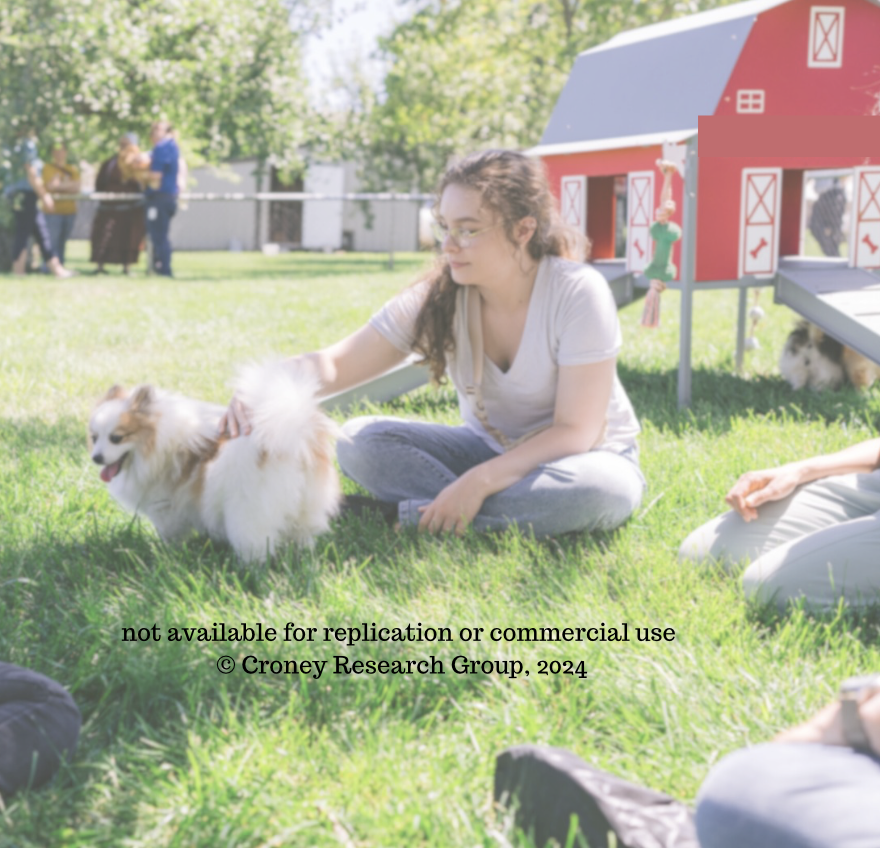
Instead, by simply saying “hey look, some of these places aren’t doing harm” that gives other facilities hope that someday we might say the same thing about their family and their kennel. The hope that organizations won’t target them just for being dog breeders could very well inspire them to want to set themselves apart too and start to do better.
We are already using the law and other regulations to stop the worst, why not try hope and love to encourage the good to grow?
The Amish breeders that are behind the Canine Care Certified program are truly trying to set themselves apart by meeting standards that far exceed USDA regulations, which is why we even mentioned the CCC part of it all. (Trust me, it would have been much easier if I hadn’t.) The 220 or so breeders who are currently Canine Care Certified make up less than 6% of all active USDA dog breeders and brokers, but nearly every single one of them is run by an Amish or Mennonite family. This shows me that there has been a cultural shift within these communities and they are working hard to take their reputations back. As an organization that researches the puppy mill industry exclusively, we couldn’t ignore this side of it or the rest of our work wouldn’t have any integrity.
There are currently 20 states that have zero state level regulations or inspections on dog or cat breeders and the federal Animal Welfare Act is decades due for an upgrade. There are still 600 puppy stores across the country and way too many still source from puppy mills and offer predatory financing. In addition, our research has found that just one website is posting 80,000 puppies for sale from 15,000 breeders, most of whom are unlicensed. All of these are extremely concerning issues that should still be our focus.
Our work is not over and we still have a long way to go before we can say that we have put an end to puppy mills once and for all. Please know that Bailing Out Benji’s mission has not changed. We are going to continue researching puppy mills, having conversations with the public, and advocating for changes within the industry so that no animals or families suffer because of cruelty and greed.
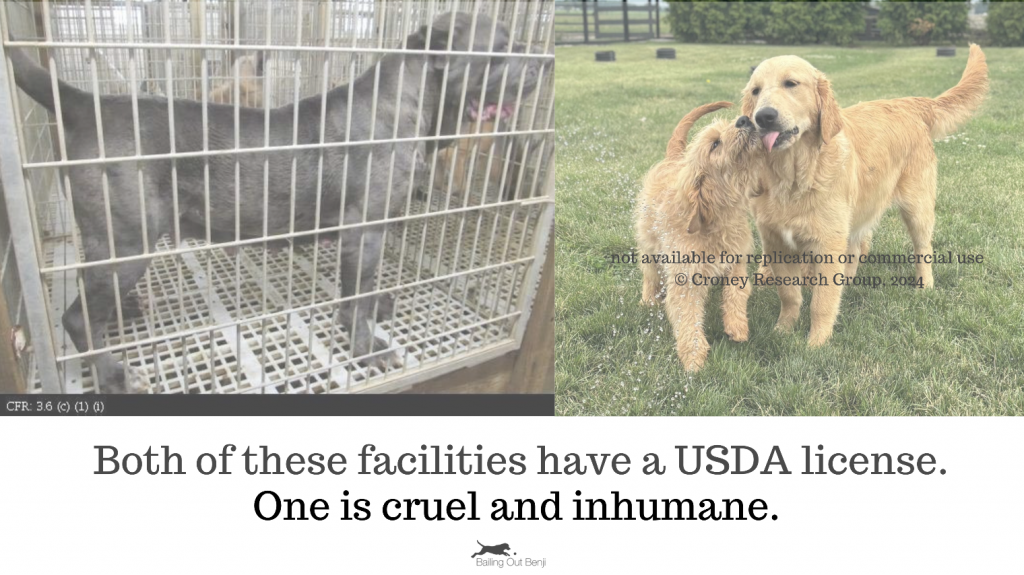
Bailing Out Benji is the only organization that protests multiple puppy stores across the country each weekend and our volunteers will continue to do that in communities where we have concerns.
Bailing Out Benji is the only organization that lists all of the puppy stores and which breeders they source from so consumers can research before they buy. Our team will continue that work too.
By sharing with you the findings from our field research, we aren’t attempting to derail any of the work that is currently being done. Our role is to provide context, research, and the most current data surrounding the puppy mill industry so we can all do better and be effective advocates.
Thank you so much for reading this far. I know that people will continue to have questions as they continue processing all of this information. Just know that we are here and happy to have polite discourse about all of this. As I have been saying, your feelings on this are valid, no matter what they are. I am still trying to figure out how I feel about all of it too. Changing implicit bias within ourselves about passionate, deep-rooted beliefs is extremely hard, but that doesn’t mean we shouldn’t try. Especially when our frustrations are often misdirected at an entire community of people instead of on the systems that allow cruel kennels to operate.
I am very publicly going on this journey alongside all of you, which is why I am not going to tell you how to feel. So many of you have learned about puppy mills alongside me and followed Bailing Out Benji’s journey this entire time and that won’t stop now. We want to show you what we see and tell you what we know, so you have all the information we do and can make humane decisions on your own.
Mindi Callison
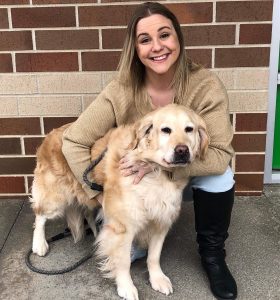
Additional thoughts:
After some introspection about my personal social media posts, I realize that some of my comments may have come across as self-righteous, specifically referring to how I will “wait” for those who aren’t where I am yet in this journey. I apologize for assuming that everyone thinks the same about any issue, but specifically this one. To further explain, what I will communicate better in the future is that I’m not closing the door or turning my back on those who don’t think like me, so long as we keep treating each other with mutual respect. I understand that not everyone is okay with dog breeding at all or breeding on the commercial scale. We all have valid opinions on this and it all depends on our experiences and situations. I, too, wish that more families would consider adoption as their first option and will always advocate for that. I will also be someone who continues to adopt the seniors, the hospice and the mill kids because I know they need a home like mine. But the reality is that so many of our coworkers, friends, even family members are buying dogs. I am sure you know someone who has bought a dog recently instead of adopting. Where did they go? A website? A store? The newspaper? Puppy mills are selling everywhere and we need to make sure that we are using all of the tools we have at our disposal to put an end to those cruel and inhumane facilities. I’m not asking anyone to change their definitions of “reputable” or “responsible” when it comes to breeding or how breeders sell. We all have our own comfort levels with various things and one size does not fit all. What we truly wanted to communicate is that because of our work and the work of so many others, hopeful changes are happening within the commercial dog breeding world and the Amish community appears to be leading the way.
When I shared my experience of visiting these kennels and getting to know these families, it was to break down the stereotypes that many attribute to the whole community because of the actions of part of their congregation. I think many of us can agree that we don’t want to be judged by the behavior of some of those that we share similar roles with. I am sure some of you reading this now are hoping that the world doesn’t associate my words and actions with your beliefs, right? We are not all the same and neither are they.
There are nuances. Things are so messy, always.
Not all.
Not all.
Not all.
